THE MUSCLE BOYS, PART VIII.
 Saturday, November 6, 2021 at 04:58PM
Saturday, November 6, 2021 at 04:58PM By Peter M. DeLorenzo
Detroit. Beginning in the late 50s and running through the mid-70s, sports car racing - particularly here in the U.S. - was captivated and dominated by V8-powered machines that barked their intent at race tracks all over the country. Sure, back in those days, SCCA (Sports Car Club of America) events were heavily populated by small-bore sports cars like Austin-Healeys, Triumphs, MGs, Minis, 356 Porsches and many other brands. And there was no question that they provided the backbone of SCCA racing back then. But starting in the late 50s with race-prepared Corvettes, and then fueled by the emergence of the Shelby American Cobra, and on to the USRRC, Trans-Am and Can-Am days, the real action was with the big-bore machines.
I vividly remember seeing the crowds gravitate to the fences when those V8s fired-up on the false grid. They couldn't really help it, because the sound was guttural, menacing and mesmerizing all at once. Standing among those cars on false grids all over the Midwest with our "A" Production Corvettes - Waterford Hills, Grattan, Mid-Ohio, Nelson Ledges, Milwaukee, Blackhawk Farms and, of course, Road America - was an in-period treat that I couldn't get enough of and will never forget. And besides the spectacular noise coming from those machines, the sheer speed was awesome to behold as they devoured every race track they visited.
And the legendary names that wheeled these machines were a mix of Hall of Famers and hard-scrabble drivers who wouldn't settle for anything less than the fastest, baddest V8s available. The legends were present and accounted for: Ken Miles, Dan Gurney, Roger Penske, Mario Andretti, Jim Hall, Bruce McLaren, Denny Hulme, Jackie Stewart, Peter Revson, John Surtees, Parnelli Jones, George Follmer, Mark Donohue, Swede Savage, Sam Posey, Milt Minter, Ed Leslie, Dr. Dick Thompson ("The Flying Dentist"), Allen Grant, Jerry Grant, et al. And, of course, my brother Tony and his teammate Jerry Thompson. This list of drivers - which I have affectionately dubbed "The Muscle Boys" - were just the tip of the iceberg. There were countless others who wheeled and manhandled their brutal machines at tracks all across the country. They were visceral, no-compromise machines that captivated the hearts and minds of racing enthusiasts, and if you've ever been to a vintage racing event, the same is true today, if not more so. I hope you enjoy the following images and recollections as much as I do.
And that's the High-Octane Truth for this week.
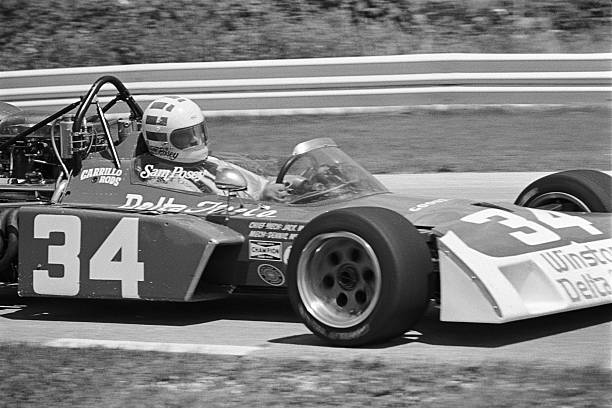
(Getty Images)
Lime Rock Park, September 4, 1972. Sam Posey (No. 34 Surtees TS11 Chevrolet) on his way to third in the Lime Rock Grand Prix F5000 race behind Brett Lunger (No. 6 Hogan Racing Lola T300 Chevrolet) and Brian Redman (No. 80 Bobcor Performance Chevron B24 Chevrolet). F5000 was just getting going in the U.S. It would become extremely popular over the next few years.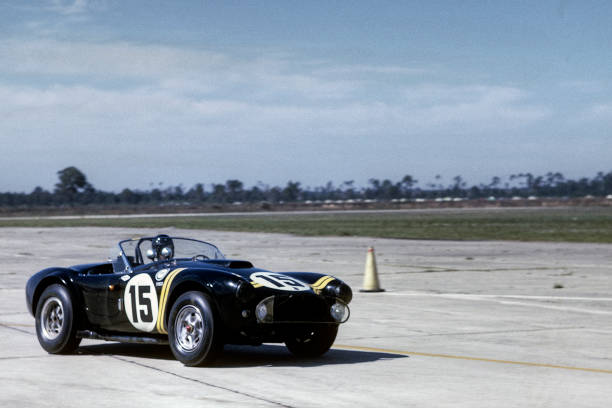 (Dave Friedman/Getty Images)
(Dave Friedman/Getty Images)
12 Hours of Sebring, March 23, 1963. Dan Gurney (No. 15 Shelby American Cobra) and his co-driver, Phil Hill, encountered major issues during the 12 Hours and finished well down in the field. The No. 14 Shelby American Cobra driven by Dave MacDonald and Fireball Roberts(!) didn't finish either. But the No. 12 Shelby American Cobra driven by Ken Miles, Lew Spencer and Phil Hill finished 11th overall and 1st in GT+4.0.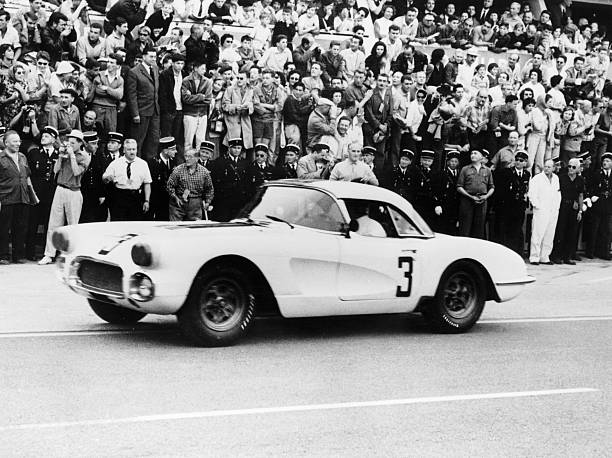 (Getty Images)
(Getty Images)
Le Mans, France, June 26, 1960. The No. 3 Briggs Cunningham Chevrolet Corvette being driven to the grid before the 24 Hours of Le Mans. John Fitch and Bob Grossman finished 8th overall and 1st in GT5.0 in the No. 3. The other Briggs Cunningham entries, the No. 1 Chevrolet Corvette driven by Cunningham and William Kimberly, and the No. 2 Chevrolet Corvette driven by Dr. Dick Thompson and Fred Windridge did not finish. It was an incredible achievement for the Cunningham Corvette Team and the first major win for the Corvette on foreign soil.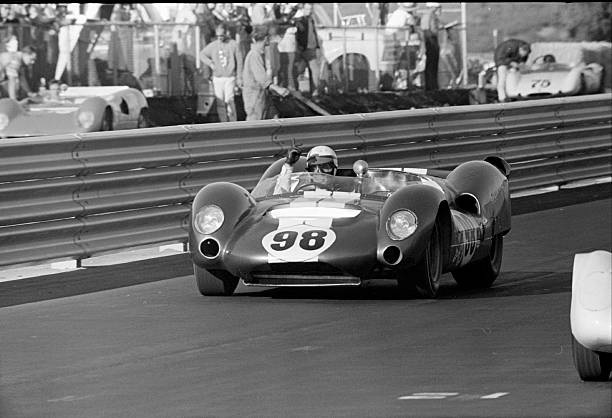 (Dave Friedman/Getty Images)
(Dave Friedman/Getty Images)
Laguna Seca, October 18, 1964. Parnelli Jones (No. 98 Shelby American Cooper King Cobra Ford) running hard in the 200-mile Monterey Grand Prix. Jones had a lousy weekend, failing to finish in either of the two heats. On the other hand, Roger Penske had a memorable weekend in the No. 66 Chaparral 2A Chevrolet, winning both heats. Dan Gurney (No. 19 Lotus 19 B Ford) finished second in both heats, and Bob Bondurant (No. 96 Shelby American Cooper King Cobra Ford) finished third in both heats.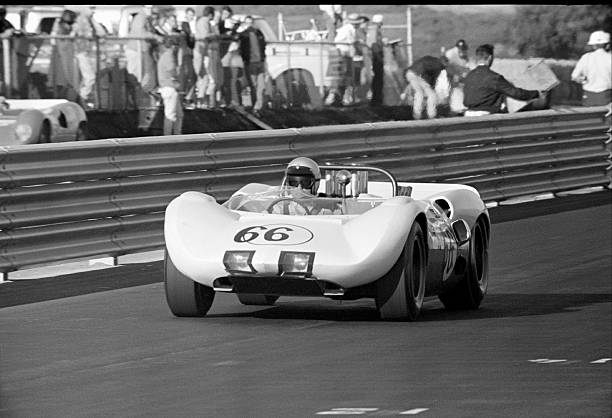 (Dave Friedman/Getty Images)
(Dave Friedman/Getty Images)
Laguna Seca, October 18, 1964. People forget what a outstanding driver Roger Penske was back in the day. His performance in the 200-mile Monterey Grand Prix, when he swept both heats in his No. 66 Chaparral 2A Chevrolet against the toughest competition the sport had to offer: Dan Gurney, Parnelli Jones, Bruce McLaren, Bob Bondurant, Jerry Grant, Ronnie Bucknum, Ed Leslie, Innes Ireland, Jack Brabham, Charlie Hayes, Augie Pabst, Al Unser, Bobby Unser, et al. was indeed impressive.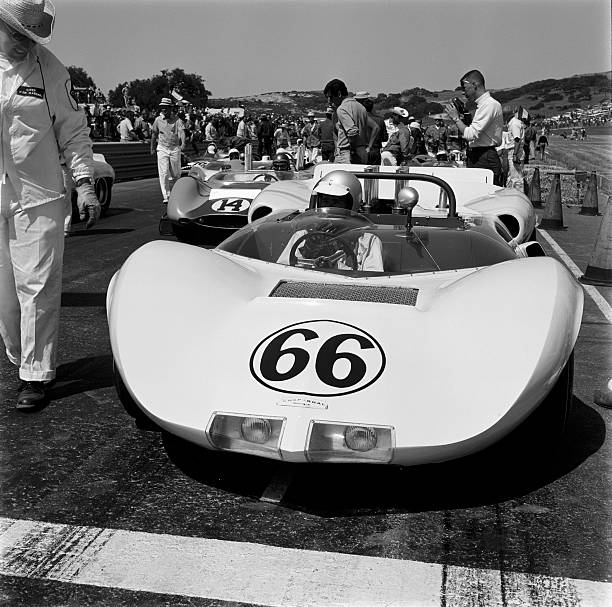 (Getty Images)
(Getty Images)
Laguna Seca, October 17, 1965. Jim Hall (No. 66 Chaparral 2A Chevrolet) on the starting grid for the 200-mile Monterey Grand Prix. Hall didn't finish the 1st Heat due to an accident and he didn't start the 2nd Heat. Walt Hansgen (No. 17 John Mecom Racing Lola T70 Ford) won overall that weekend, with Hap Sharp (No. 65 Chaparral 2A Chevrolet) finishing second. Don Wester (No. 60 Genie Ford) was third.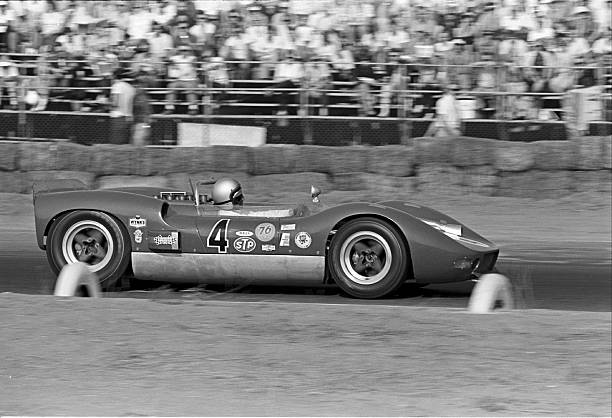 (Dave Friedman/Getty Images)
(Dave Friedman/Getty Images)
Riverside International Raceway, October 31, 1965. Bruce McLaren (No. 4 McLaren Elva Mark II Olsmobile) finished third in the L.A. Times Grand Prix for Sports Cars behind Hap Sharp (No. 65 Chaparral 2A Chevrolet) and Jim Clark (No. 1 Team Lotus 40 Ford).
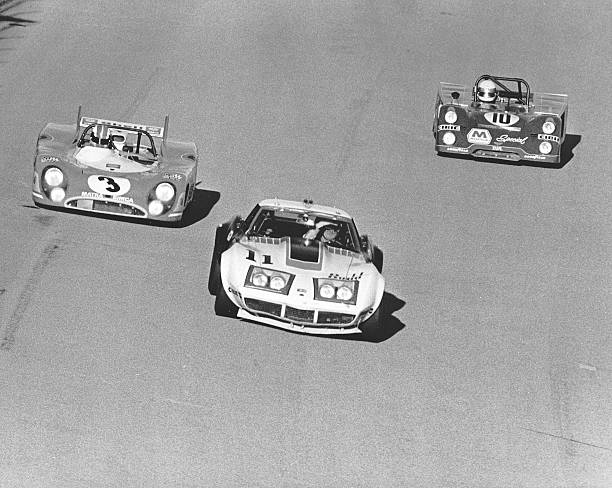 (Getty Images)
(Getty Images)
Daytona 24 Hours, February 4, 1973. The No. 11 Chevrolet Corvette driven by Tony DeLorenzo runs on the high banks ahead of Francois Cevert (No. 3 Equipe Matra-Simca Matra MS670 V12) and the No. 10 Shierson Racing Chevron B19 driven by Charlie Kemp. The No. 11 was a specially-prepared big-block Corvette that DeLorenzo qualified 6th and because of its tremendous speed on the high banks ran with the leaders in the opening portion of the race. DeLorenzo and co-driver Maurice Carter didn't finish the race. The Cevert/Jean-Pierre Beltoise/Henri Pescarolo Matra qualified 2nd but didn't finish (blown engine). The Shierson Chevron qualified 9th but didn't finish either. The race was won by Peter Gregg/Hurley Haywood (No. 59 Brumos Porsche Garrard Record Players Porsche 911 Carrera RSR).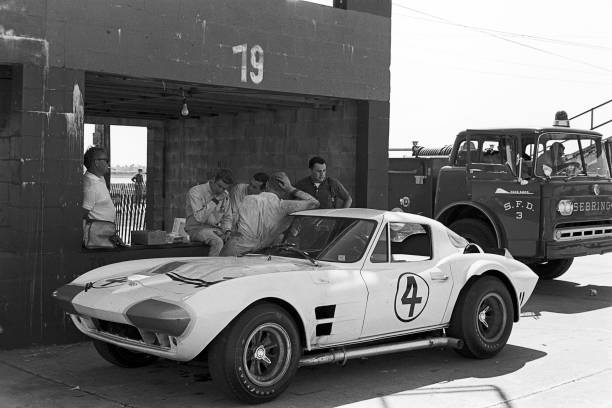 (Getty Images)
(Getty Images)
Sebring, Florida, March 20, 1964. The No. 4 Chevrolet Corvette Grand Sport driven by Jim Hall and Roger Penske during practice for the 12 Hours of Sebring, which would run the next day. The duo started in 7th but finished a disappointing 18th. The Corvette Grand Sports were out in full force for this race to go up against Ken Miles and John Morton in the No. 1 Shelby American 427 Cobra Prototype. A.J. Foyt/John Cannon (No. 2 John Mecom Racing Chevrolet Corvette Grand Sport) battled with Miles the hardest but finished 23rd. The No. 3 Chevrolet Corvette Grand Sport driven by Delmo Johnson/Dave Morgan finished well-down in 32nd position. The Miles/Morton Cobra did not finish due to a blown engine.




